4 Best Fruits to Erase Bloating, Science Shows
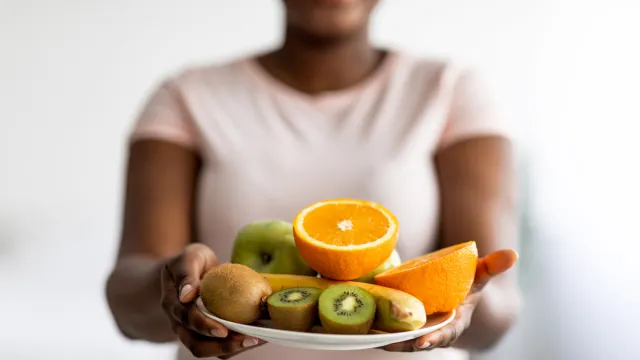
If your belly often feels full or tight after eating, resulting in persistent discomfort or gassiness, you could be suffering from chronic bloating. In some cases, bloating can indicate an underlying gastrointestinal condition, such as irritable bowel syndrome (IBS), inflammatory bowel disease, bacterial overgrowth in the small intestines, or lactose intolerance. However, many people find that their discomfort is simple to solve, requiring just a few dietary tweaks, including the type of fruit you eat. Read on for the four best fruits to soothe your gastrointestinal discomfort and erase bloating.
RELATED: 10 Safe and Easy Ways to Poop Instantly.
1
Unripened bananas
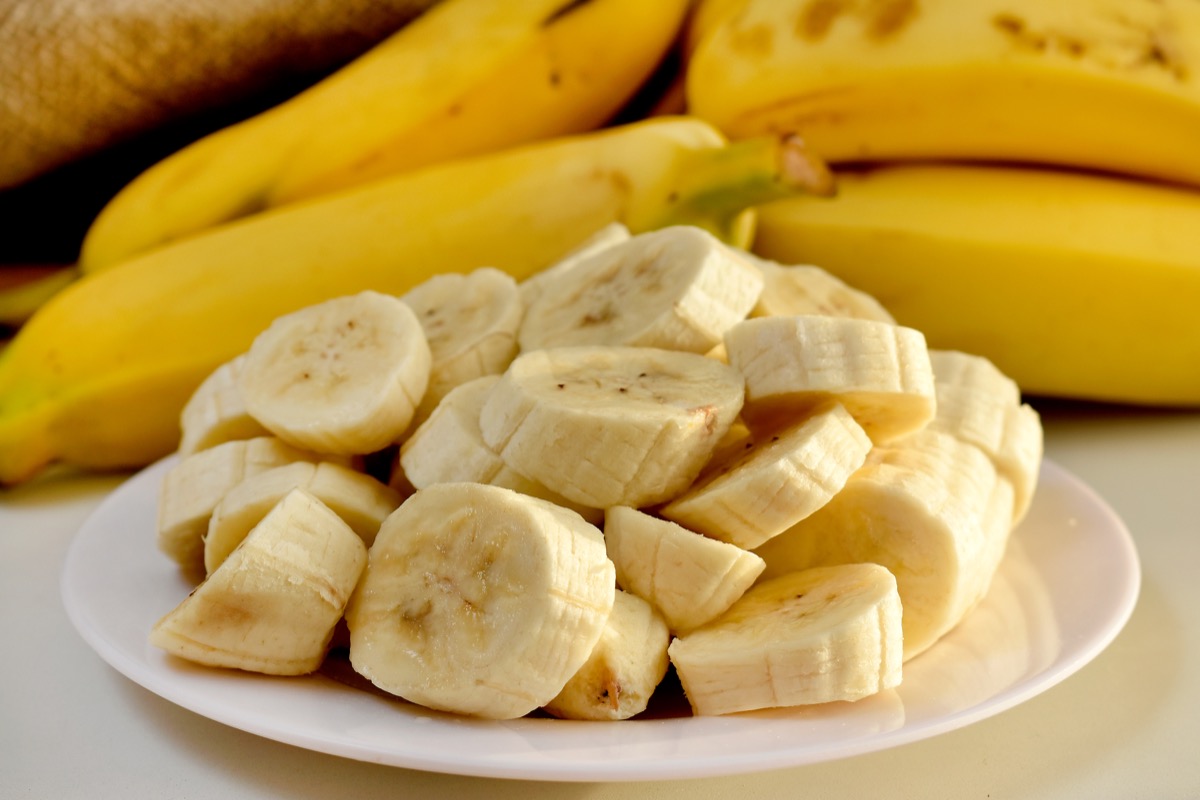
Bananas are packed with potassium, vitamin C, vitamin B6, fiber, antioxidants, phytonutrients, and more. Besides contributing broadly to your diet, they can also improve uncomfortable gastrointestinal symptoms and digestion.
Unripe bananas are considered particularly beneficial for combating bloating and abdominal discomfort. That’s because they contain resistant starch, a carbohydrate that travels through the intestines without breaking down, promoting gut health.
“The starch acts as food for the growth of beneficial microbes in the digestive tract,” explains Harvard Health Publishing. “Microbes break down and ferment the starch as it passes into the large intestine, producing short-chain fatty acids (SCFA) that may play a role in the prevention of chronic diseases including digestive disorders. Clinical studies have shown the potential use of SCFA in the treatment of ulcerative colitis, Crohn’s disease, and antibiotic-associated diarrhea,” their experts write.
RELATED: Certain Foods Trigger Natural Ozempic-Like Weight Loss Effect, Doctor Says.
2
Lemon
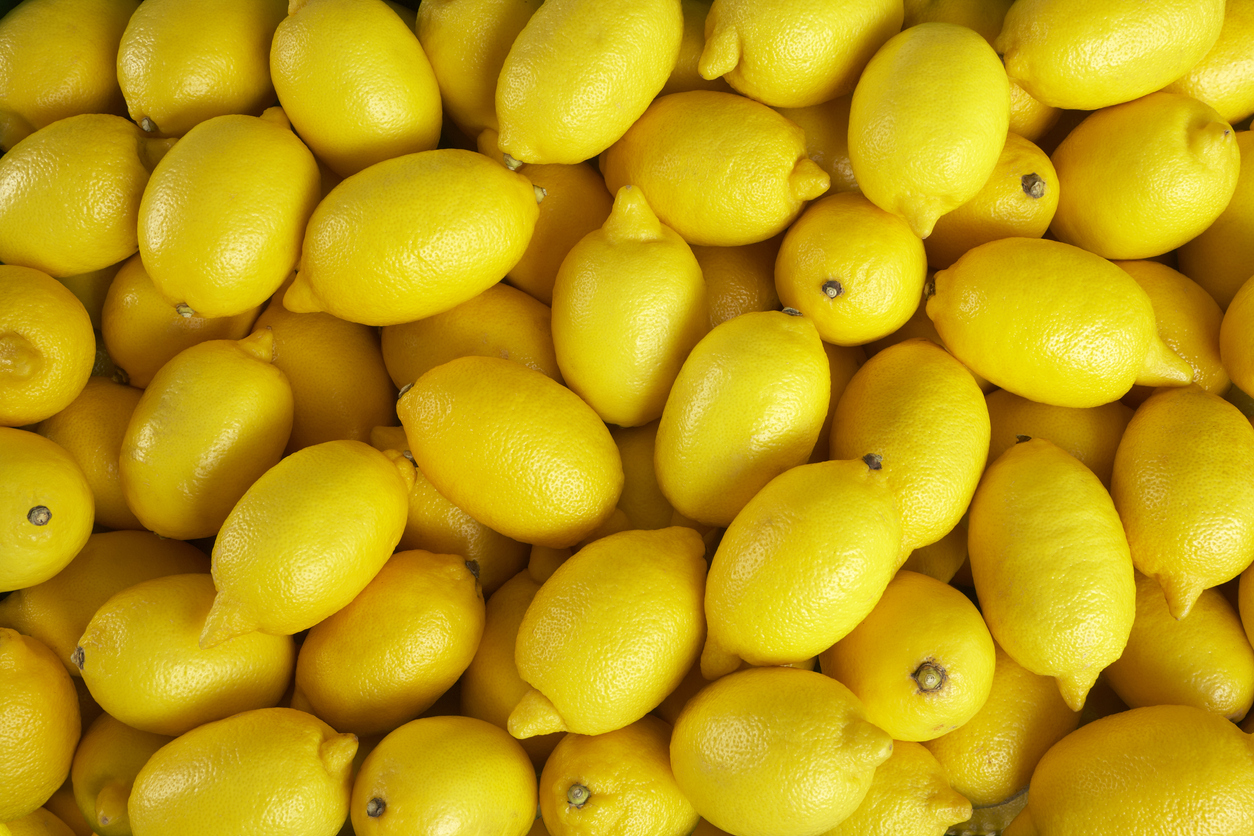
According to a 2022 study published in the European Journal of Nutrition, eating lemons or drinking their juice can help enable quicker gastric emptying, which can in turn help reduce a feeling of bloating.
In fact, the study noted that “compared to water, lemon juice led to a 1.5 fold increase of the volume of gastric contents, 30 min after the meal. Gastric emptying was also 1.5 times faster.”
3
Kiwifruit
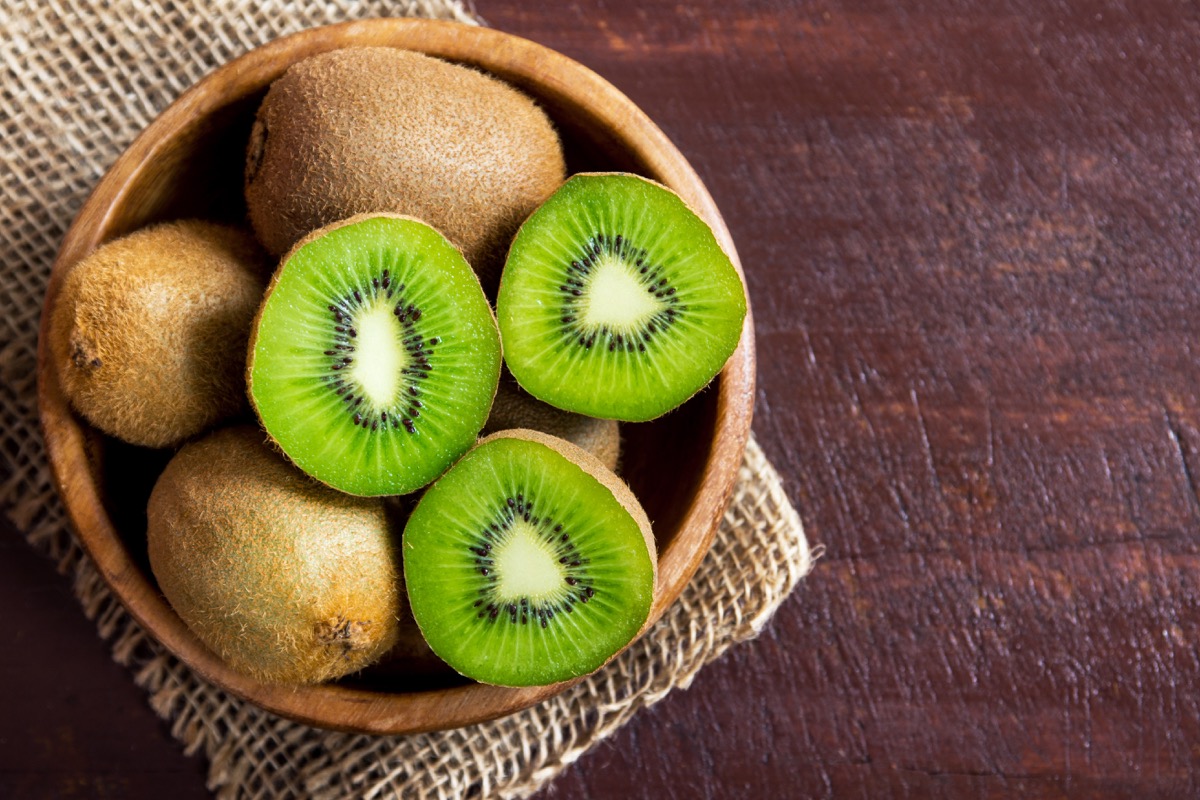
Eating kiwifruit every day is another way to erase bloating. According to a 2022 study published in the journal Advances in Nutrition, the benefits should kick in after just two weeks. “Kiwifruit have known positive effects on digestion,” the study authors wrote.
However, the digestive benefits of eating kiwifruit don’t end there. “During clinical intervention trials using kiwifruit to improve constipation, upper gastrointestinal (GI) symptoms such as abdominal discomfort and pain, indigestion, and reflux were also alleviated,” the study states.
RELATED: Eating These 3 Fruits Before Bed Will Help You Get a Better Night’s Sleep, Experts Say.
4
Dark berries
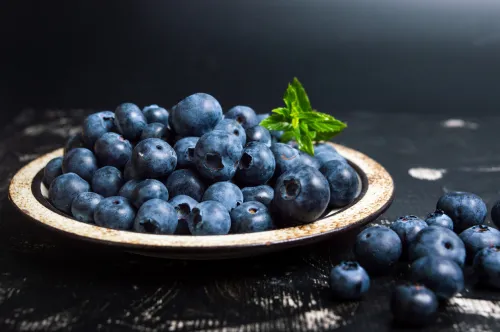
Finally, experts from the Mayo Clinic recommend eating “darker-hued fruit such as blackberries, blueberries, and strawberries, which contain valuable antioxidants” if you’re hoping to reduce bloating.
In a 2023 study published in the journal Nutrients, blueberries were found to be especially beneficial among patients with functional gastrointestinal disorders (FGID). During the six-week study, 43 patients with FGID consumed either 180 grams of freeze-dried blueberries or a placebo that matched the berries’ sugar and calorie contents.
The researchers then evaluated their quality of life through a self-administered questionnaire, evaluated stool samples, performed a fructose breath test, and scored each patient for the presence of gastrointestinal symptoms including bloating, abdominal pain, diarrhea, heartburn, flatulence, fullness, and more.
“After six weeks of treatment… blueberry treatment resulted in more patients with relevant abdominal symptom relief compared to placebo,” the study authors wrote.
RELATED: 10 Best Foods to Eat in the Morning for a Faster Metabolism, Nutritionists Say.
And here are some fruits to avoid.
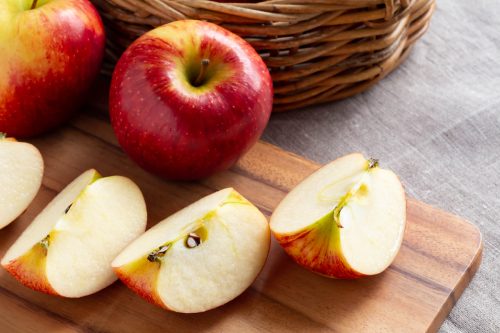
The Mayo Clinic notes that while it’s beneficial to eat a diverse range of fruits and vegetables for optimal gut health, you should “avoid fruits that are high in fructose, such as apples, pears, and watermelon” if you hope to eliminate bloating or gassiness.
However, if you enjoy apples and pears, the Cleveland Clinic explains that peeling or cooking the fruit can reduce the likelihood that they will make you bloated since their skin is what’s “high in hard-to-process fiber.”
Best Life offers the most up-to-date information from top experts, new research, and health agencies, but our content is not meant to be a substitute for professional guidance. When it comes to the medication you’re taking or any other health questions you have, always consult your healthcare provider directly.
- Source: Harvard Health Publishing: Bananas
- Source: European Journal of Nutrition: Glycemic response, satiety, gastric secretions and emptying after bread consumption with water, tea or lemon juice
- Source: Advances in Nutrition: Habitual Green Kiwifruit Consumption Is Associated with a Reduction in Upper Gastrointestinal Symptoms
- Source: Nutrients: Blueberries Improve Abdominal Symptoms, Well-Being and Functioning in Patients with Functional Gastrointestinal Disorders
- Source: Cleveland Clinic: 15 Foods That Can Cause Bloating